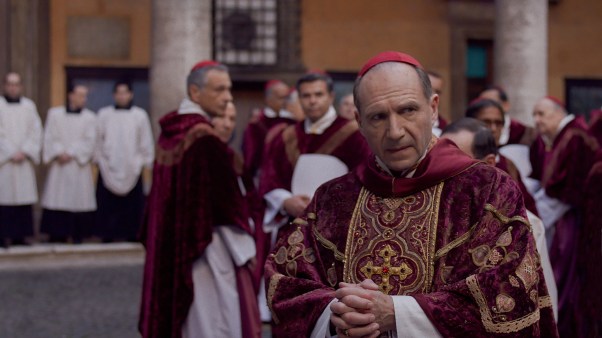“Vote Biblically!” At least here in Michigan, it’s impossible to miss the signs. Among evangelical Christians, they seem as ubiquitous as the ichthus fish bumper sticker.
I’m sympathetic. All my life, I’ve attended evangelical churches and called them home. I grew up with a message of “God, country, and family.” And I’ve always been conservative in both my theology and my politics. In most elections, I vote straight-ticket Republican, and voting is extremely important to me.
It’s precisely because voting is so important that I believe we need to thoughtfully evaluate calls to vote biblically and consider everything that can mean. Sometimes, given short-term political dynamics or the candidates available, declining to vote can be the best way to reflect our values and acknowledge the importance of an election. Sometimes, the right choice—and one way to conform our politics to Scripture—may be not voting, as new research suggests millions of American Christians are planning this fall.
The way we talk about voting in many predominantly white evangelical churches sends more than one message. In recent history, it has often been a thinly veiled encouragement to vote Republican. But it also sends the message that you must vote, that voting is an American duty and possibly even a Christian duty. Here I want to focus on that second claim about voting itself.
There is no biblical mandate to vote. That’s not to suggest that voting is somehow inconsistent with biblical teaching. God forbid! Choosing to vote in democratic elections and, more generally, to engage in peaceful civic participation is in alignment with virtually any reading of the Bible.
The problem is that many voters feel cross‑pressured. It’s not always obvious how we should vote. Sometimes, none of the viable candidates align with our core values—or even come close. This year, the Democratic presidential candidate holds positions I believe to be inconsistent with Scripture. But I also believe the Republican candidate lacks the requisite character to be president.
Some Christians in this position choose to vote for a third-party candidate. I respect that choice and agree that it’s much more important to vote for the candidate who best represents our values than it is to vote for someone who can win. Issues and character matter. But I also understand the political and legal realities in America that make it functionally impossible for third-party candidates to succeed. So rather than vote third party, I choose not to vote.
That decision always has its detractors, but this year it seems particularly unpopular. Over the last few weeks, I’ve encountered two main objections to my choice.
The first is that we’re always presented with imperfect choices. This is life. In voting, as in everything else, we simply need to deal with it and make the best choice we can from the options provided, even when those options are suboptimal.
The basic claim here is true, even about decisions far more personally consequential than a vote. For example, we pick imperfect spouses and imperfect churches. Fair enough.
But these analogies are less compelling than they appear at first glance. Neither choice is similarly binary, and neither begins with a very small pool of options from which we’re forced to select. In choosing a spouse, we are active in selecting the candidate pool—and anyway, choosing not to marry is a decision the Bible endorses (1 Cor. 7:39–40).
Likewise, when choosing a church, we typically have many viable options, not just two. Still, if the comparison seems compelling, let’s extend the analogy.
Imagine having to choose between (1) a church that doesn’t affirm the deity of Christ but holds to a traditional view on issues of sex and gender and (2) a church that does affirm the deity of Christ but also has an affirming view on issues of sex and gender. A congregation of the Latter-day Saints, perhaps, versus a very progressive Episcopalian church. In such a quandary, I expect many of my fellow conservative evangelicals begin to see the case for choosing not to choose as we try, however haltingly, to “cling to what is good” (Rom. 12:9).
The second objection I’ve been hearing is that policy issues alone should be the deciding factor in an election: Voting is about policy outcomes, and the stakes are too high to worry about lesser considerations, like character. God uses imperfect people to accomplish his good ends, and surely our standards are not higher than God’s?
As a political scientist, I agree that voting is about policy outcomes. But as a Christian, I disagree that it’s only about policy outcomes.
Yes, God uses imperfect people. But of course, he has no choice—“There is no one righteous, not even one” (Rom. 3:10)—and God does reject some people for some roles, especially powerful roles, due to poor character. (King Saul comes to mind.) Moreover, God operates with knowledge, freedom, and love I don’t have. His omniscient use of imperfect people in his redemptive work is hardly comparable to me voting for a deeply flawed candidate against my better judgment.
And yes, issues are important. Over the next four years, many federal judges and perhaps some Supreme Court justices will be appointed. Economic policy decisions could have major effects on our daily lives. Policies on abortion, foreign policy, and immigration have life-or-death effects. Again, fair enough.
But I believe how we get there is as important as where we arrive. “Winning the presidential election is vitally important,” James Dobson wrote in 2007, “but not at the expense of what we hold most dear.” I’m convinced character is a core value too. It’s equally part of what I “hold most dear” in politics—and not nearly so divisible from policy as many suggest. Without good character, the candidates we support may not even try to deliver the policy results they promise in exchange for our votes.
I understand the arguments for voting even when the viable choices are bad. I understand why some Christians believe it’s better to pick a side and push it to improve insofar as they can. My goal here is not to argue that all Christians should decide against voting. It is the more modest claim that in a binary election with choices like these, not voting may be the best way for many Christians to heed their consciences and the promptings of the Holy Spirit—even to “vote biblically.”
Robert Postic is a professor of political science at the University of Findlay. He received his MA in theology from Fuller Theological Seminary (1990) and his PhD from Wayne State University (2007).

















